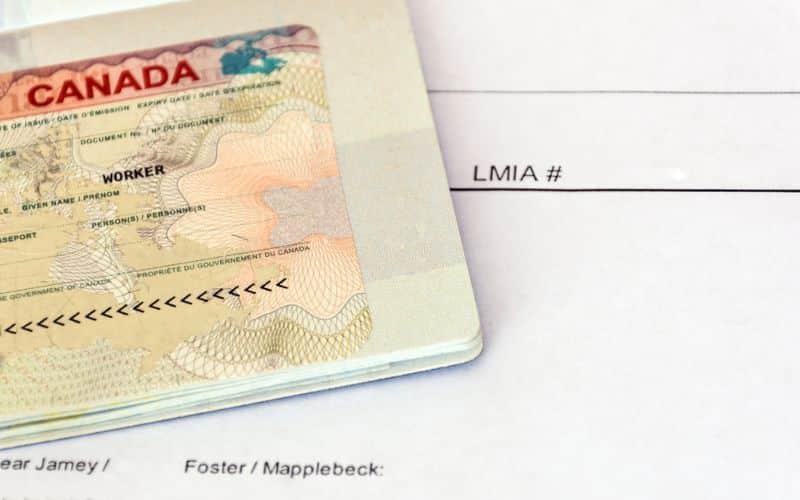Open Work Permit
An open work permit grants you authorization to work with any Canadian employer. Because it’s not issued based on a specific job, the application is different from other work permits.
Open Work Permit vs. Employer-Specific Work Permit
An open work permit isn’t limited to a certain job. While other work permits are given specifically for work for a designated employer that you applied with, the Open Work Permit lets you change employers while it’s valid, as long as the employers and their activities are accepted by the Canadian Government.
Unlike other work permits, an open work permit doesn’t need you to complete a Labour Market Impact Assessment to provide to your employer. You also don’t need proof via the government Employer Portal that your employer has extended an offer of employment, or need to have the employer compliance fee paid.
An employer-specific work permit is a type of work permit issued by the Government of Canada that allows an individual to work in Canada for a specific employer. It means that you are authorized to work only for the employer specified on the work permit and in the position mentioned.
Types of Open Work Permits
In general, there are two types of open work permits. An unrestricted open work permit lets you change your employer, occupation, and work location. There are also open work permits with restrictions – one which allows you to change employers, but not occupation, and one which allows you to change employers but not location.
Who Is Eligible for Open Work Permits?
You may be eligible for an open work permit if you fall under one of these categories:
-
- A foreign national who applied through the Inland Spousal/Common-Law Partner Sponsorship Category of the Family Class and have maintained legal status in Canada
- An international student who graduated from a designated learning institution and is eligible for the Post-Graduation Work Permit Program
- A student who is no longer able to meet the costs of your studies (destitute student)
- Possess an employer-specific work permit and are being abused or at risk of being abused in relation to their job in Canada
- If you applied for permanent residence in Canada
- A dependent family member of someone who applied for permanent residence
- The spouse or common-law partner of a skilled worker or international student
- The spouse or common-law partner of an applicant of the Atlantic Immigration Pilot Program
- A refugee, refugee claimant, a protected person or a family member
- If you are under an unenforceable removal order
- A temporary resident permit holder
- A young worker participating in special programs
As a temporary worker, you must meet Temporary Visa eligibility requirements, too, as well as some other requirements, such as having no criminal record.
Types of Work Permits
There are a few routes towards obtaining work permits.
Work Permit for Inland Spousal/Common-Law Partner Sponsorship
A foreign national may apply for an open work permit through the Inland Spousal/Common-Law Partner Sponsorship Category of the Family Class and maintain legal status as a visitor, worker, or student in Canada before submitting the application.
You can apply whether your permanent residence application has not been approved in principle or your permanent residency application has been approved in principle. You will be able to work for the duration of your work permit while waiting for permanent residence.

Post-Graduation Work Permits (PGWP)
Foreign nationals who complete a post-secondary program in Canada offered by a Canadian institution may be eligible to apply for a one-time Post Graduation Work Permit. A PWGP will grant work authorization to work in Canada on a part-time or full-time basis upon completing your studies. A PWGP can be issued for the study program period, or up to three years.
This work permit is not based on a job offer or a Labour Market Impact Assessment.
Spouse/Common-law partner Accompanying an International Student or Skilled Worker
The spouse or common-law partner of an International Student or Skilled Worker (principal temporary foreign worker) may qualify for an open work permit for the same length of time that the spouse or partner is studying or working in Canada.
The principal partner must have a valid study permit for full-time schooling or a valid work permit. The spouse or common-law partner must meet general eligibility requirements for a work permit. There were changes to this program that took effect on January 30, 2023, so you must have applied on or after that date.
The dependent child of an International Student or Skilled Worker will also be issued a visa for that same period of time. All dependent children younger than 18 years of age are also authorized to pursue an education, from preschool and primary to secondary school.
Immigration, Refugees and Citizenship Canada defines a “dependent child” as a person under 22 years old without a spouse, partner, or a child of their own. A person over 22 years old may still be considered a dependent if they cannot financially support themselves due to a mental or physical condition.
The principal temporary foreign worker must be employed at a management level in a professional occupation, with a skill level rating of 0, A or B, according to the National Occupational Classification. This requirement is not necessary for principal temporary foreign workers nominated for permanent residence by a province. The principal temporary foreign worker will be permitted to work for at least six months in Canada.
Young Professionals

This program allows young foreign nationals to gain experience with a specific employer in Canada; this is not an open work permit category. To qualify, you must have a job offer from a Canadian employer, and work for that employer during your stay.
Contact us today to find out if you qualify for an open work permit. Oro Immigration’s professional team can help you with your immigration application; if you are not eligible for this program, we can guide you to another you may qualify for. We will always explain the rationale behind eligibility.

FREQUENTLY ASKED QUESTIONS
What is an Open Work Permit in Canada?
An Open Work Permit allows you to work with any Canadian employer and is not restricted to a specific job.
How does an Open Work Permit differ from an Employer-Specific Work Permit?
Unlike Employer-Specific Work Permits, an Open Work Permit does not require a Labour Market Impact Assessment or an employer to pay a compliance fee.
Who is eligible for an Open Work Permit?
Eligibility includes foreign nationals in various categories, such as graduates from Canadian institutions, partners of skilled workers or international students, and those under humanitarian grounds.
Are there different types of Open Work Permits?
There are unrestricted Open Work Permits, which allow changes in employer, occupation, and location, and restricted ones, which may limit changes in occupation or location.

